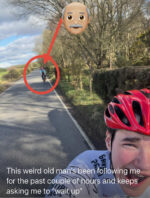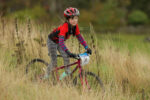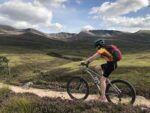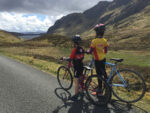Cycling and disability
Taken from the Blazing Saddles Column in the Tayside Courier Weekend Supplement 22.9.12
Scot Tares looks back over a stunning summer of cycling.
“Wow 4 golds brill! Went to Costco yesterday & when he saw my name he said excuse me love shouldnt u be racing not shopping – Thank you to everyone who made it possible for me to win my 4 races here in London 2012. It has been amazing and the crowds just incredible!” – Sarah Storey on Twitter
2012 has been, quite frankly, an amazing year for sport in the UK and cycling has been right at the head of the juggernaut of victories that seem to keep coming for our athletes this year. However, these victories don’t just happen; they are the culmination of years of unseen effort that every athlete puts in to reach the highest level. For me, however it is the success of our Paralympian cyclists that eclipses all of these other achievements; each of these athletes has gone through the same emotional rollercoaster as the Olympic athletes, training for years to pin-point victory in one short moment that will define their careers. For some like Jody Cundy that effort ended in a crushing disappointment; others such as Sarah Storey – who won four Gold medals, set the track and road on fire with their victories. Unfortunately many people still view a person with a disability as someone who cannot participate in sport and opportunities for a disabled athlete are greatly reduced; these challenges can add extra obstacles on the path to victory. During the Paralympics I listened to one radio phone-in where several callers were expressing the opinion that the Paralympics were not real sport and the sports-people were not examples of athletes at the top of their game. I think those, like Sarah Storey who battled years of bullying at school when she was a Paralympian swimmer at the age of 14 would disagree. For me, such an ill-informed view is a complete non-starter and represents the discrimination that still exists for disabled athletes.
I have worked with a disability voluntary organisation for 17 years and my brother has cerebral palsy, so throughout my life I have seen first-hand the challenges that anyone with a disability faces. Often it is a subtle form of discrimination that can manifest itself as apathy, or a lowering of expectations, or commonly just a lack of funding or accessible equipment that can place obstacles in the way and for someone trying to achieve in sport this can be a huge challenge to overcome. Although many sports for non-disabled athletes have similar difficulties it is particularly relevant for many at the grass roots level of disability sport and this is where the challenges can be highest. There are a huge number of dedicated volunteers who put in time and effort to support and coach these athletes, but it is important to the continued success, at all levels, that we can engage more coaches and volunteers to promote an inclusive approach to disability sport.
If this has sparked an interest you can find out more at the “Festival of Inclusive Cycling” at Lochore Meadows in Fife on the 12th and 13th October. Also “Talking Tandems” are looking for cyclists in West and Central Fife to train as volunteer tandem pilots for blind and partially sighted cyclists, allowing them to participate in mainstream cycling activities.
Scot Tares
Twitter: @SkinnyTyres
Talking Tandems
| For more details contact: | Festival of Inclusive Cycling – http://bit.ly/UPqn8d Talking Tandems – E-mail: info@talkingtandems.org Website: www.talkingtandems.org |
| This week I asked Janet Brereton from “Talking Tandems” for her favourite route: | |
| Janet: “The truth of the matter is that it’s not about a favourite route for me, it’s about the challenge of new routes! For me, it’s the sense of achievement when you’ve completed a cycle run – and the stopping for lunch and a chat with other cyclists that makes cycling fun for everyone! If you pinned me down one of the routes I enjoy close to home is cycling from the Tay Bridge to the Forth Bridge.” | |
Copyright DC Thompson 2012





